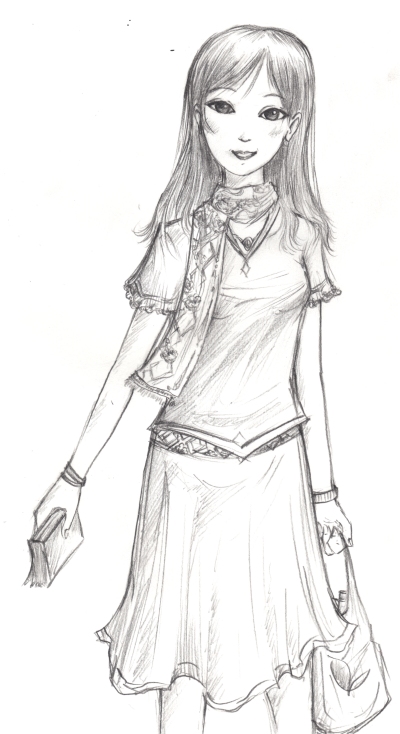I guess it’s sort of weird, this being my blog for basically everything I want to write about. Every time I try to get myself going on a particularly “professional” streak, I somehow come to the point where I want to once again revert this to a little, personal space for emoting. Haha! It’s been awhile, though, hasn’t it? I feel like it’s more of a biological cycle than anything else – or at least, I feel particularly detached from the situation right now. What situation? I don’t even have an inkling of a clue.
I don’t think that I feel unhappy. If anything, I should feel more free. I finished my essays, all eight pages of them, and things are otherwise going smoothly.
But I am having a harder and harder time trying to identify with myself, or feel that I am a human being. Although I have concluded that most of my memories are indeed of real events, I have also concluded that most of the associated images or even videos that I might recall in my mind are probably false. How could I have memories of a person picking up one of my phone calls? That makes no sense!
In fact, I think that maybe I am spending too much time outside of myself. Why is my brain spending so much of its time formulating the story from the “other person’s point of view?” I even may feel bitter after having an imaginary argument with someone, or become dizzy after feeling the projection of what I seem to believe are the “rationally approximated” expressions and words for the person in the car next to me, who I cannot even see.
After someone passes me, I watch that person’s average speed to determine in hindsight how annoyed he or she was in the earlier situation. Why do this? Because my instincts tell me to, because I get annoyed when I have to follow someone slow.
But it’s all nonsense! Once again, I am pushing my brain to the edge, trying to guess at things I’m not meant to guess at, and pretending to model the world over which I know I have no control.
I have no point in saying all of this. But it just .. taxes the soul a little. Just a little.

